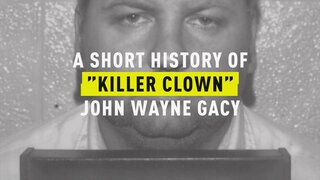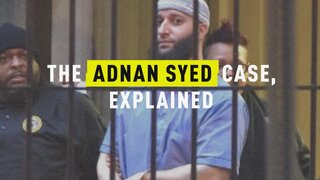What Is An Alford Plea? The History Behind The Confusing Legal Term
Named after Henry Alford, the term refers to a "best interests plea" in which a defendant pleads guilty despite claiming innocence.
HBO's four-part docu-series "The Case Against Adnan Syed" offered up some explosive new information about the infamous Adnan Syed case in its final episode. Syed's lawyer, Justin Brown, said that that in 2018, the State of Maryland offered Syed a deal: If he pleaded guilty to the 1999 murder of his ex-girlfriend Hae Min Lee and spent four more years in prison (bringing his total time behind bars to 23 years), he could be released. Meanwhile, at that time, the possibility of a new trial with the hope of exoneration hung over the offer.
“They want him to plead guilty, no Alford plea,” Brown, says in the final episode of “The Case Against Adnan Syed," adding later, “He could turn down this offer, and we could lose the case, and he could spend the rest of his life in prison. And you can imagine how hard it would be to live with that decision.”
Ultimately, Syed rejected the deal, claiming he did not want to plead guilty to a crime he swears he didn't commit. He also was not granted a new trial, after all, as Maryland's Court of Appeals reversed the ruling of a lower court vacating his conviction and ordering him a new trial. His family friend and confidant Rabia Chaudry tweeted on Sunday that Syed told her he “doesn’t regret” the decision, though, as he is maintaining his innocence.
But what is this Alford plea Brown mentioned?
History Of The Alford Plea
An Alford plea, known also as a “best interests plea,” essentially allows for a defendant to claim neither guilt or innocence toward charges brought against them in court, according to Cornell Law School.
It was named after Henry Alford, a southern black man with a long rap sheet who, in 1970, was tried for the 1963 murder of a man in North Carolina.
Alford was indicted on first-degree murder and was facing life imprisonment or the death penalty. Alford agreed to plead guilty to second-degree murder, according to the U.S. Justice Department. But when he took the stand, he claimed he was innocent and that he only pleaded guilty to avoid the death penalty; he was eventually sentenced to 30 years in prison.
After a series of petitions and appeals, the Supreme Court ultimately decided that it “saw no difference between a defendant who maintains his innocence with a plea bargain and one who admits to the crime.”
In 2000, the DOJ noted: “In an Alford plea the defendant agrees to plead guilty because he or she realizes that there is little chance to win acquittal because of the strong evidence of guilt. About 17% of state inmates and 5% of federal inmates submitted either an Alford plea or a no contest plea, regardless of the type of attorney. This difference reflects the relative readiness of state courts, compared to federal courts, to accept an alternative plea."
That said, Indiana, Michigan, and New Jersey do not allow for Alford pleas.
There are many famous examples of the Alford plea throughout history, though:
The Case Of H. Brent Coles
Former Boise mayor H. Brent Coles and his human resources director and chief of staff were accused of misappropriating public funds during a Nov. 2002 trip to New York, according to the Idaho Statesman.
In Nov. 2003, Coles entered Alford pleas to two counts of felony corruption, according to the Office of the Idaho Attorney General, after initially being indicted on five such charges related to the trip and other issues.
In the case State of Idaho v. Howry, the state described an Alford plea as follows: “Although an Alford plea allows a defendant to plead guilty amid assertions of innocence, it does not require a court to accept those assertions. The sentencing court may, of necessity, consider a broad range of information, including the evidence of the crime, the defendant's criminal history and the demeanor of the defendant, including the presence or absence of remorse.”
In Jan. 2004, Coles was sentenced to six months in jail, the Statesman reported.
The Murder of Taylor Behl
Taylor Behl was found dead on Oct. 5, 2005 following a month-long search for the 17-year-old Virginian, according to local outlet The Richmond-Times Dispatch.
Behl went missing when she left her dorm with Ben Fawley, who she had met the year prior. He was a suspect in Behl’s disappearance and was eventually apprehended during the investigation for possession of child porn unrelated to the case, The Richmond-Times Dispatch reports. He then allegedly told authorities that he choked Behl to death by accident on Sept. 5 while they were partaking in a consensual sexual encounter in her vehicle.
Fawley was then charged with Behl’s murder. But on Aug. 9, 2006, despite maintaining that she died during a sex act in which her breathing was constrained, Fawley eventually entered an Alford plea to second-degree murder, according to a Washington Post report at the time.
“In doing so, Fawley did not admit his guilty but conceded that state had enough evidence to convict him in Behl’s killing,” the paper wrote.
Fawley was sentenced to 30 years in prison.
The West Memphis Three
In May 1993, the bodies of three second-grade boys, hogtied with their own shoelaces, were found in the town of West Memphis, Arkansas.
Eventually, three teenagers — Damien Echols, Jason Baldwin, and Jessie Miskelley Jr. — were arrested after Misskelley confessed to the murders and implicated the other two, according to the New York Times. Despite Misskelley ultimately retracting his admission, all three were found guilty of murder; Echols received a death sentence while the other two were sentenced to life in prison.
After a series of appeals and post-conviction hearings that ultimately led to nowhere, in 2011, something changed: Judge David Laser annulled the capital murder charges for Baldwin and Echols after the Arkansas Supreme Court found there was enough evidence to call a new trial, according to the Times.
The three would receive new trials if they would enter Alford pleas, which they did, the Times reports. They were then credited for time served and freed from prison.
“I believe that with all the circumstances that were facing the state in this case, this resolution is one that is palatable and I think that after a period of time it will be acceptable to the public as the right thing,” Prosecutor Scott Ellington said, according to the Times.
Michael Peterson
Novelist Michael Peterson was in 2003 convicted of killing his wife. But Peterson, who consistently maintained that he did not commit murder, chased justice despite the ruling.
In 2011, a judge granted him a new trial, according to the Charlotte Observer. And in Feb. 2017, Peterson was officially granted his freedom after he accepted an Alford plea on reduced manslaughter charges.
Peterson, however, wasn’t exactly thrilled about the situation, calling the plea his most difficult decision.
“Right now, I can live with this. It’s not fair, it’s not right,” he told reporters, according to The Associated Press. “I’m innocent This deal is not a good one for me…It is a great deal for the district attorney.”











































